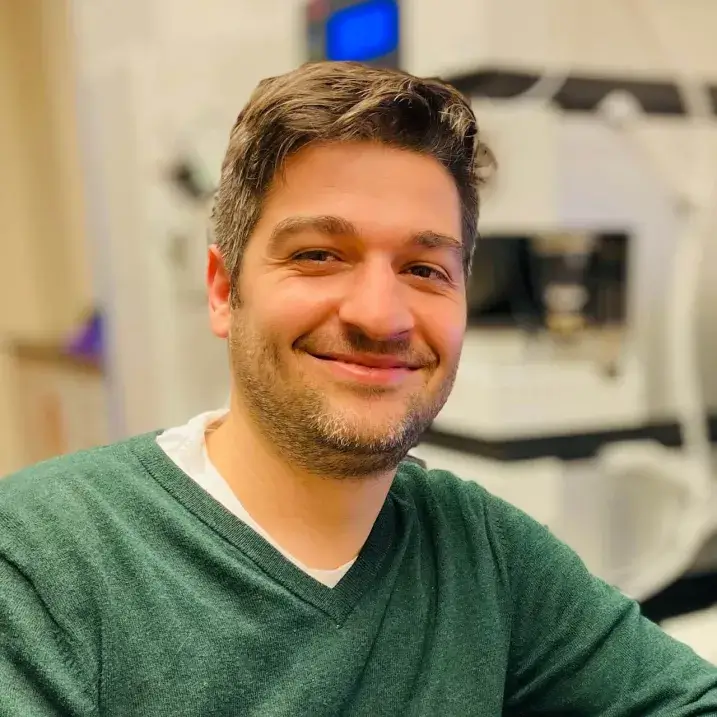Health Science Research Facility 118
149 Beaumont Ave
Burlington, VT 05405
United States
- Ph.D., Harvard University
Molecular Physiology & Biophysics
Member, VCC
Areas of expertise
Molecular mechanisms of intracellular movement in models of pathogenic fungi and neurological disease.
- The Salogiannis lab uses biochemistry, cutting-edge live cell microscopy and genetics in a variety of cell types (mammalian neurons, cancer cell lines, and the filamentous fungus Aspergillus nidulans) to investigate the molecular mechanisms underlying microtubule-based movement in health and disease.
- Intracellular cargos (organelles, vesicles, macromolecules) are driven long distances along microtubules by molecular motors (16 cargo-carrying kinesins and one cytoplasmic dynein in interphase). Microtubule-based transport influences a range of functions critical for the survival, maintenance and growth of cells. The importance of this process is emphasized in neurological diseases, where a primary hallmark is defects in microtubule-based transport and distribution of cargos.
- Our lab’s goal is to understand (1) the molecular mechanisms of how, when and where these cellular cargos move on microtubules (2) how the spatiotemporal distribution of cargos affects cellular and neuronal function and (3) how microtubule-based transport goes awry in neurological diseases such as Parkinson's disease.
Please see Lab Website for more information.
BIO
Dr. Salogiannis received his Ph.D. in 2013 from the Program in Neuroscience at Harvard Medical School in the laboratory of Michael Greenberg. His graduate work explored how the actin cytoskeleton regulates excitatory synapse formation in early brain development. In 2014, Dr. Salogiannis continued his interests in the cytoskeleton as a Postdoctoral Researcher in the Department of Cellular Molecular Medicine at the University of California San Diego in the laboratory of Samara Reck-Peterson. Here, he used in vitro reconstitution assays and live-cell imaging to reveal fundamental mechanisms of microtubule-based transport. In 2021, Dr. Salogiannis joined the Larner College of Medicine at the University of Vermont as an Assistant Professor of Molecular Physiology & Biophysics. The Salogiannis Lab uses biochemical, molecular, and genetic approaches to understand how intracellular movement regulates cellular function and underlies neurological disease.
Publications
Bio
Dr. Salogiannis received his Ph.D. in 2013 from the Program in Neuroscience at Harvard Medical School in the laboratory of Michael Greenberg. His graduate work explored how the actin cytoskeleton regulates excitatory synapse formation in early brain development. In 2014, Dr. Salogiannis continued his interests in the cytoskeleton as a Postdoctoral Researcher in the Department of Cellular Molecular Medicine at the University of California San Diego in the laboratory of Samara Reck-Peterson. Here, he used in vitro reconstitution assays and live-cell imaging to reveal fundamental mechanisms of microtubule-based transport. In 2021, Dr. Salogiannis joined the Larner College of Medicine at the University of Vermont as an Assistant Professor of Molecular Physiology & Biophysics. The Salogiannis Lab uses biochemical, molecular, and genetic approaches to understand how intracellular movement regulates cellular function and underlies neurological disease.
